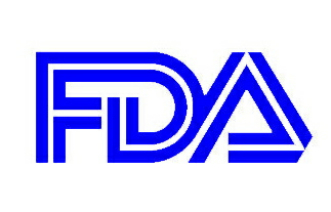The FDA finally finalized the rules on produce safety last week. Michael Taylor, the head of that agency said in a statement, “Its been a long and arduous task, to say the least. Finalizing the rules is just one part of building a modernized food safety system.”
 The Food Safety Modernization Act was passed in 2011. The major rules in that Act have been slowly finalized by the FDA and the Office of Management and Budget. This latest new rule targets produce grows. They must ensure the safety of water in irrigation, since some outbreaks have been caused by produce contaminated by irrigation water that contains Salmonella or E. coli bacteria.
The Food Safety Modernization Act was passed in 2011. The major rules in that Act have been slowly finalized by the FDA and the Office of Management and Budget. This latest new rule targets produce grows. They must ensure the safety of water in irrigation, since some outbreaks have been caused by produce contaminated by irrigation water that contains Salmonella or E. coli bacteria.
They must make sure workers practice good hygiene in the field and while packing. A Cyclospora outbreak linked to imported cilantro lead to a ban on that product after feces and toilet paper were found in the fields.
Biological soil amendments (such as compost and manure) are also regulated. If not properly aged, those fertilizers can contain pathogenic bacteria such as E. coli O157:H7.
And they must also make sure that deer and other wildlife after kept away from farm fields. Animal waste has also been a factor contaminating produce and causing food poisoning outbreaks.
In fact, contaminated produce is one of the vehicles most likely to cause foodborne illness, despite the fact that most consumers are more wary of meat, poultry, and eggs. These rules are a set of “best practices” that will apply to most produce packing houses.
Taylor added that the produce rule is meant to prevent these outbreaks, which have ranged from spinach tainted with E. coli, Listeria monocytogenes on cantaloupes, and Salmonella in imported cucumbers. It’s interesting that sprout production has additional requirements. There have been many food poisoning outbreaks linked to raw sprouts over the past few years, including a Salmonella outbreak this year linked to Wonton Foods sprouts.
The Salmonella outbreak linked to cucumbers this summer sickened at least 767 people and killed four. Taylor said, “the recent multistate outbreak of Salmonella in imported cucumbers that has killed four Americans, hospitalized 157 and sickened hundreds more, is exactly the kind of outbreak these rues can help prevent. The FDA is working with partners across the government and industry to prevent foodborne outbreaks. The rules will help better product consumers from foodborne illness and strengthen their confidence that modern preventive practices are in place.”
The Jensen Farms cantaloupe outbreak in 2011 sickened at least 100 people and killed 30; the produce was mishandled in that case. An E. coli outbreak linked to State Garden Organic spinach in 2012 sickened at least 33 people. And this fall, a Salmonella outbreak in Minnesota linked to tomatoes served in salsa at Chipotle restaurants sickened at least 64 people.
This new rule does exempt some farms and foods. Smaller farms will have a longer time to comply, and farms with average sales of $25,00 or less are not affected by this rule. And fruits and vegetables that are usually cooked before consuming are exempted.
The most contentious part of the rule is the water testing requirement. Irrigation water can come from many sources, including rivers, groundwater, reservoirs, and wells. Testing is costly.




